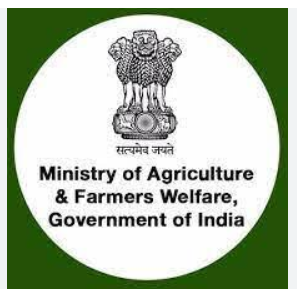Union Ministry of Agriculture and Farmers Welfare
The Union Ministry of Agriculture and Farmers Welfare, formerly known as the Ministry of Agriculture, is a branch of the Government of India that is responsible for the development and management of agriculture, horticulture, fishing, animal husbandry, and food processing industries in the country. The ministry’s primary objective is to improve the livelihood of farmers and ensure food security for the nation. The current Union Minister of Agriculture and Farmers Welfare is Narendra Singh Tomar.
History
The Ministry of Agriculture was established in 1947, shortly after India gained independence. In 2015, the ministry was renamed the Ministry of Agriculture and Farmers Welfare to emphasize the government’s commitment to the welfare of farmers. Over the years, the ministry has played a crucial role in implementing various policies and schemes aimed at increasing agricultural productivity, ensuring remunerative prices for farmers, and promoting sustainable agriculture practices.
Organizational Structure
The Ministry of Agriculture and Farmers Welfare is headed by a Union Minister, who is assisted by two Ministers of State. The ministry comprises several departments and divisions, including:
- Department of Agriculture, Cooperation and Farmers Welfare
- Department of Agricultural Research and Education
- Department of Animal Husbandry, Dairying and Fisheries
- Directorate of Economics and Statistics
- Commission for Agricultural Costs and Prices
- National Rainfed Area Authority
Each department is responsible for specific aspects of agriculture and allied sectors, and they work together to achieve the ministry’s overall objectives.
Key Initiatives and Schemes
The Ministry of Agriculture and Farmers Welfare has launched several initiatives and schemes to support farmers and promote agricultural growth. Some of the key schemes include:
- Pradhan Mantri Fasal Bima Yojana (PMFBY): A crop insurance scheme that provides financial support to farmers in case of crop failure due to natural calamities, pests, or diseases.
- Pradhan Mantri Krishi Sinchai Yojana (PMKSY): A scheme aimed at improving irrigation coverage and water use efficiency in agriculture.
- Soil Health Card Scheme: An initiative to provide farmers with information on the nutrient status of their soil and recommendations for improving soil health.
- e-NAM (National Agriculture Market): An online platform that integrates agricultural markets across the country, allowing farmers to sell their produce at competitive prices.
- Kisan Credit Card (KCC) Scheme: A credit facility that provides farmers with access to affordable credit for purchasing agricultural inputs and meeting other financial needs.
Research and Education
The Ministry of Agriculture and Farmers Welfare places a strong emphasis on agricultural research and education. The Indian Council of Agricultural Research (ICAR), an autonomous organization under the ministry, is responsible for coordinating agricultural research and education in the country. ICAR has a network of 102 research institutes, 71 agricultural universities, and numerous Krishi Vigyan Kendras (Farm Science Centers) that work towards developing new technologies, improving crop varieties, and disseminating knowledge to farmers.
The Union Ministry of Agriculture and Farmers Welfare plays a vital role in the development and management of agriculture in India. Through its various initiatives, schemes, and research activities, the ministry strives to improve the livelihood of farmers, ensure food security, and promote sustainable agricultural practices. As India’s population continues to grow and the demand for food increases, the ministry’s role in supporting the agricultural sector will become increasingly important in the years to come.


